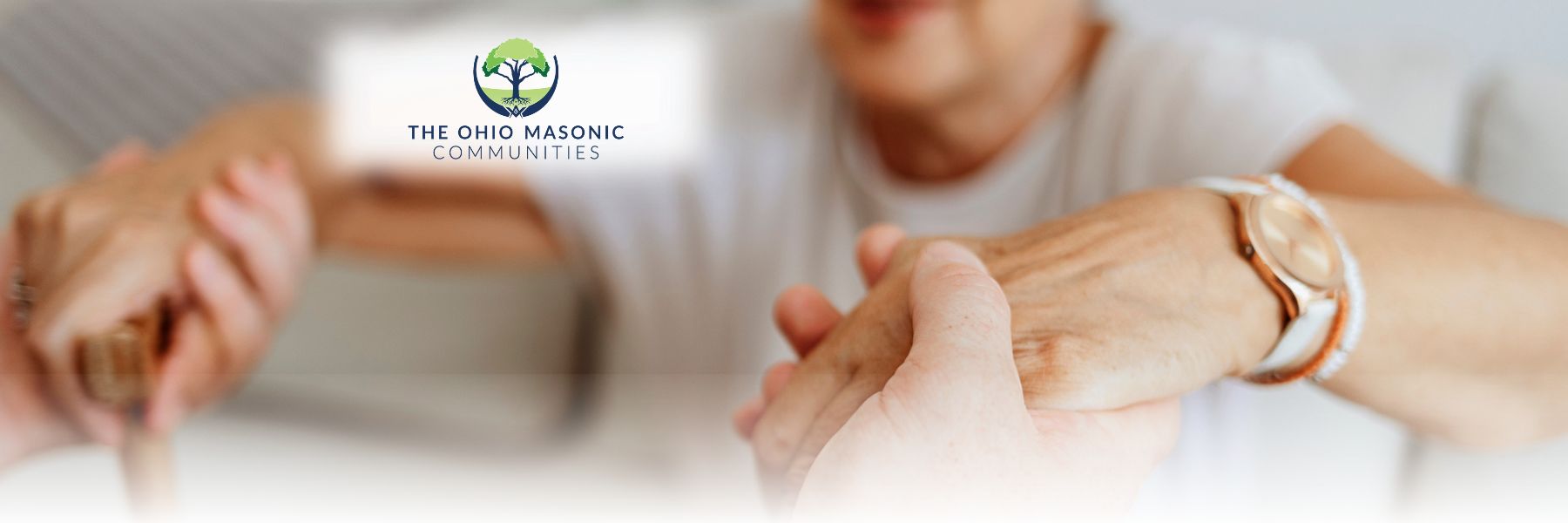
Boosting Senior Adult Independence and Confidence with
Assistive Devices
What are assistive devices? Some common devices that might come to mind are canes or walkers, but there is so much more. Assistive devices are adaptive tools designed to help bridge the gaps in mobility and ability to perform activities of daily living , such as dressing and personal hygiene tasks. These devices can restore confidence and increase independence.
Assistive devices provide peace of mind to family members. By helping loved ones with appropriate devices, you can feel more confident about their safety and mobility when you’re not with them.
Older adults may benefit from assistive devices if they have encountered any of the following situations:
- They need help with mobility and balance.
- They struggle with clothes fasteners, such as zippers and buttons.
- They have trouble getting in and out of their bed, sitting or standing from a couch or chair.
- They need extra support with toileting.
- They are prone to falls or need a quick way to get help in an emergency.
- They experience memory loss.
- They have trouble hearing.
Choosing the Right Assistive Device
It’s important to set your loved ones up with tools that are truly helpful and won’t become a source of frustration.
As you shop for assistive devices, ask yourself the following questions:
- Will the device help my loved one regain some independence?
- Can my loved one use the device safely and confidently on their own?
- Is the device made to last throughout many uses?
- Does the device have positive customer reviews?
If your loved one has trouble getting around on their own or needs help with mobility-related tasks, it’s important that they have access to the proper assistance in an environment “that fits their needs.”
Without proper help or safety features, older adults can become confined to their homes without safe access to items they need or a way to get them. These issues can lead to many concerns, including social isolation and a greater risk of falling, which is the leading cause of injury for people 65 and older, according to the Centers for Disease Control and Prevention

Modifying Your Home for Senior Adult Care
Many family caregivers modify homes to enable their loved ones to age in place. Modifying your home means more than purchasing assistive devices. Consider the following changes you may also need to make in your home.
- Remove trip hazards. Install non-slip flooring and cover all cords and wires.
- Install bathroom grab bars. Grab bars can be purchased at hardware stores.
- Provide easy seating. Kitchen and shower stools make it easier for older adults to perform activities such as cooking and bathing.
- Check thresholds. Raised flooring between rooms can be a trip hazard.
- Outdoor spaces. Check your porch and driveway for cracks. Be sure there’s a clear path to the mailbox.
7 Common Assistive Devices for Senior Adult Care
Assistive technology can greatly improve an older adult’s lifestyle by making daily tasks easier. But when your loved one’s care needs increase, you may need to start thinking about assisted living or in-home care.
If a wheelchair user can’t transfer out of the wheelchair to other equipment and back on their own, they’ll still need additional assistance. Poorly performed transfers can lead to serious injuries in both the older adult as well as the caregiver.
Here are several options that you might consider for your loved ones. These are standard items that you will see used regularly by many people. Before you make any purchases, schedule an appointment and meet with your primary care physician. Your physician will discuss what is appropriate for you or your loved ones. There is a possibility that your doctor may suggest a meeting with physical therapy to determine what is most appropriate, and how to acquire these assistive devices.
1. ) Rehabilitation poles
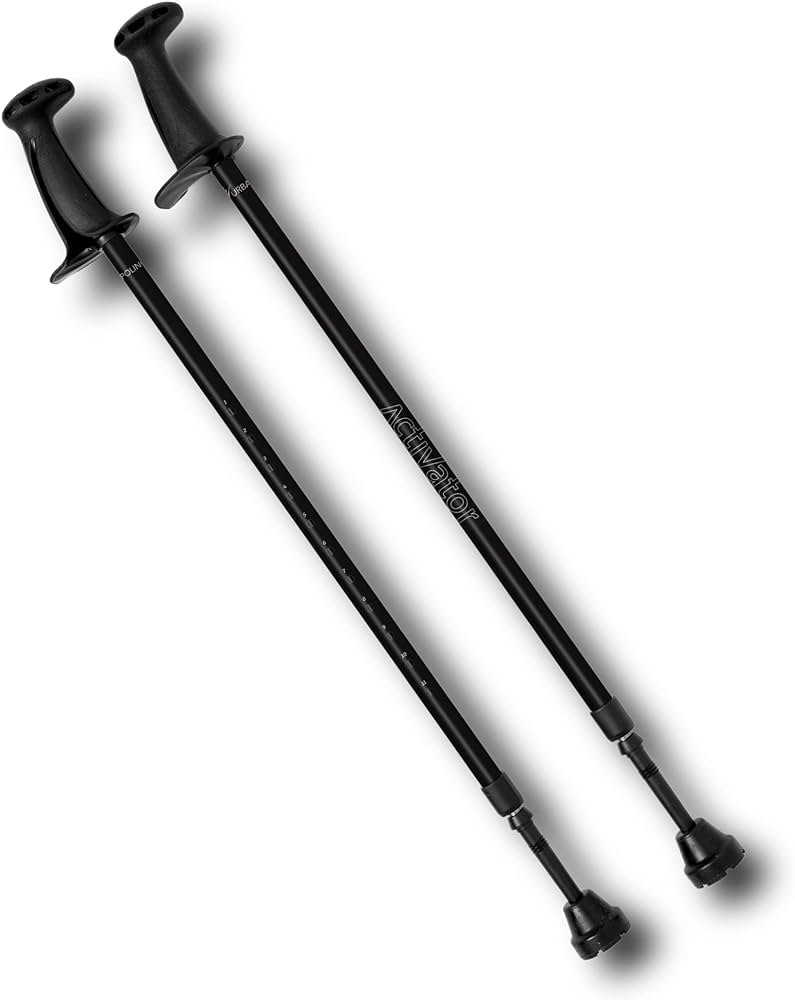
Rehab poles increase balance and mobility and are an alternative to canes and walkers. The poles offer stability and are designed for individuals living with conditions such as chronic pain. Rehabilitation poles are also a great option for people who are recovering from hip or knee surgery. Each pole has the capacity to bear up to 225 pounds of weight. The poles are adjustable to accommodate most body shapes and sizes, and they can be used both indoors and outdoors. They’re collapsible, and easy to take when traveling.
2. ) Button hook
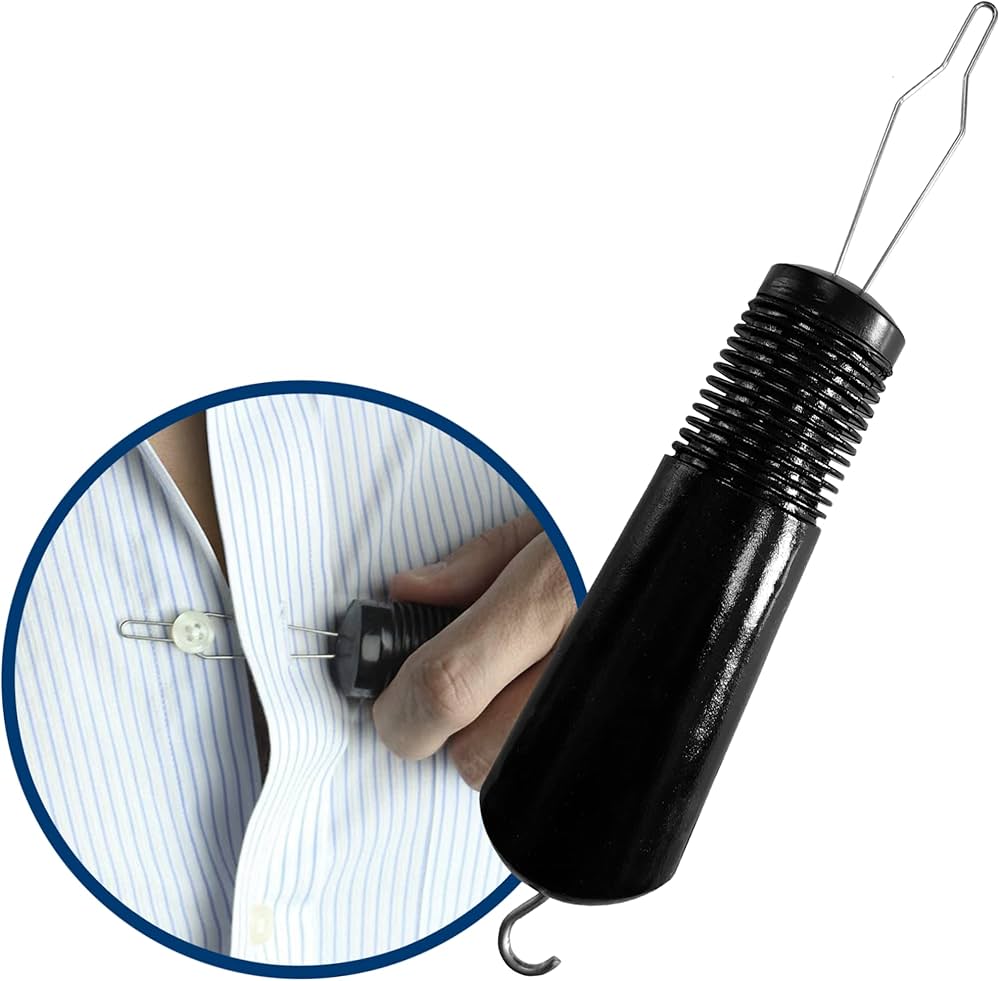
This type of assistive device is great for older adults with arthritis, fine motor impairment, or reduced dexterity. The simple tool features a hook and wire design and an ergonomic, nonslip handle. It enables the user to button blouses, jackets, and pants easily by minimizing stress on fingers and hands. There’s even a hook on one end of the tool to help with zippers.
3. ) Bed Handle
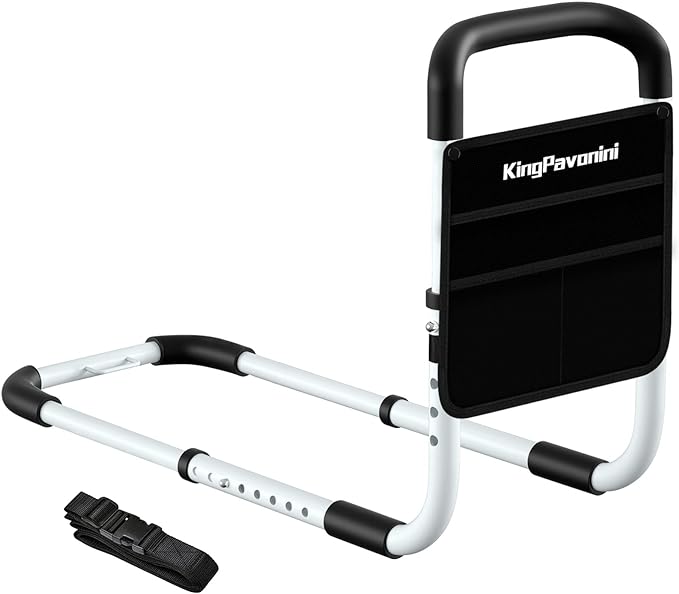
This specialized bed handle assists with getting out of bed safely. It is easy to install between a mattress and box spring of any size, and it features adjustable legs that extend to the ground for added support. The handle itself is only about 6 pounds and is designed to support up to 300 pounds. The safety strap and nonslip handle allow for a firm grip. This item helps individuals with arthritis and vertigo as well as other medical conditions.
4. ) Medical alert device
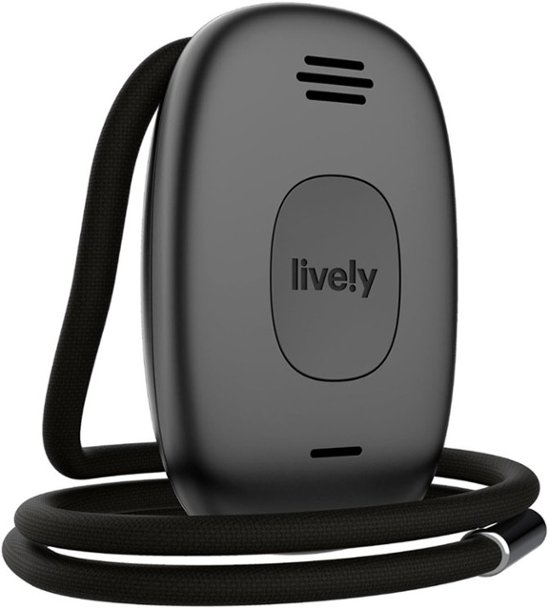
Consider a wearable medical alert device with an urgent-response button that can call for help whenever it’s pushed. Its design allows it to be clipped to clothing or worn around the neck. This device can be worn in the shower, where a significant number of falls occur. An emergency call will go out the proper authority if a fall is detected. Family members can also be registered for notification if the button is pressed.
5. ) Reminder alarm clock
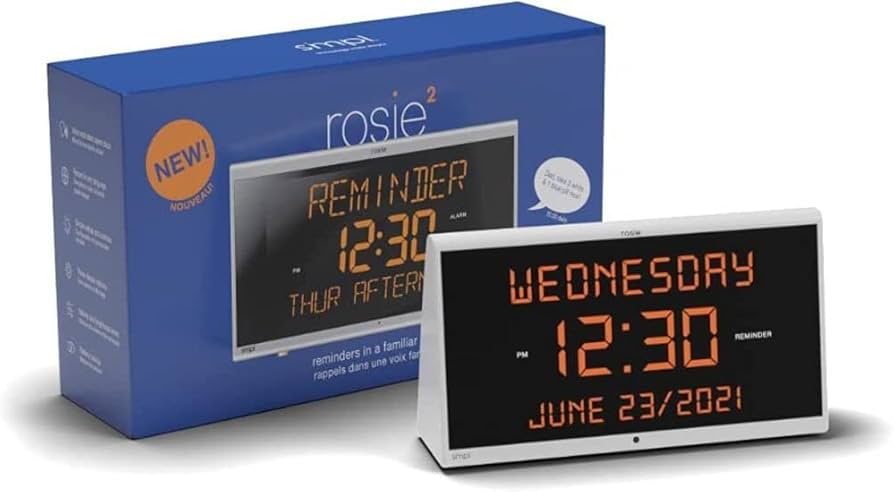
A voice-controlled alarm clock is a device for older adults struggling with memory loss. It’s user-friendly: no frustrations associated with Wi-Fi, and no difficult programming features. The device can be personalized with the voice of the user or their loved ones. Record up to 25 personalized reminders and messages and set daily time-specific reminders for appointments or everyday tasks. The large display and battery backup make this a practical device to help older adults maintain independence and ease caregiver stress.
6. ) Wireless TV headphones
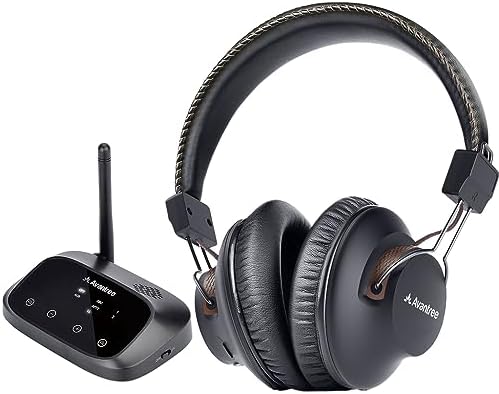
Wireless TV headphones can be connected to a television and worn like a headset to hear dialogue clearly. Using only the headset, older adults can mute the TV and still listen to the audio. The headset also includes a microphone button to pick up surrounding voices, so the user can turn it into a hearing aid. This design features ear buds, but can work with traditional, over-the-ear design.
7. ) Chair Lift
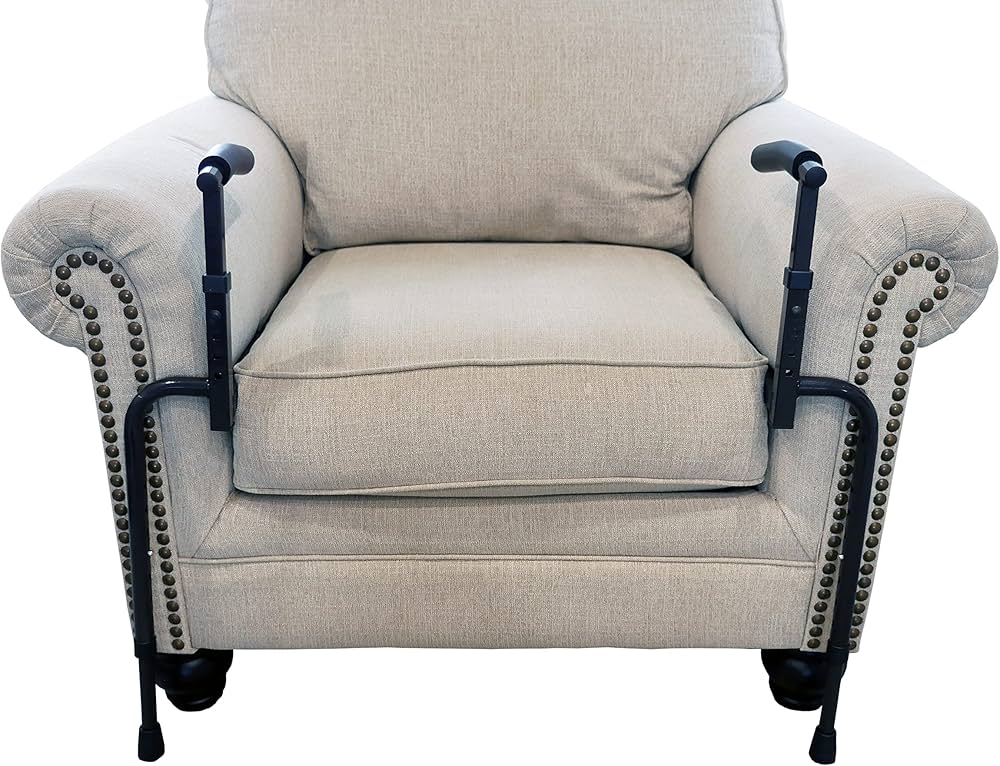
This stand-assist device can be used with a recliner, love seat, or sofa to manually lift the user into a standing position. This adaptive tool for older adults can help those with pain or joint problems safely stand up from a seated position.
Some, but not all types of assistive technology can be supplied at no cost by local organizations. The goal of these organizations is to assist older adults in maintaining their independence in their home for longer. This can make assistive technology relatively inexpensive and remove the need for a full-time caregiver.
To receive help with funding your loved ones may need to undergo a needs assessment. The assessment will help to determine what types assistive devices may be needed. Some, but not all, assistive devices are covered by insurance. Local organizations as well as your primary care physician can assist with your insurance questions as well.
If there is need for support beyond what assistive devices can provide, it might be time to consider moving yourself or loved one into a senior living community. The Ohio Masonic Communities offers three senior living communities across the state of Ohio – Browning Masonic Community in Waterville, Ohio, Springfield Masonic Community in Springfield, Ohio, and Western Reserve Masonic Community in Medina, Ohio – each offers premier living options with exceptional experiences so residents can live their best lives. If you are interested in learning more about one of our communities, give us a call at 1-877-881-1623. We will be happy to answer all your questions and be a trusted resource in the search for the right community for you!
The items mentioned in this article are recommendations for your education only and are not an endorsement or medical advice from The Ohio Masonic Communities. We recommend you consult with your primary physician before purchasing any of the items mentioned in this article.